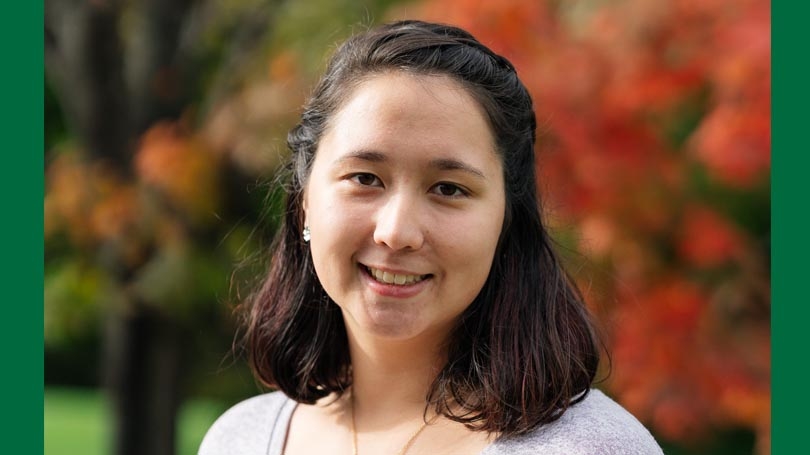
Eva Childers speaks of the importance of a female mentor network for women in STEM.
This is part of a series of articles profiling up-and-coming female STEM majors on Dartmouth’s campus, in recognition of International Women’s Day on March 8th.
If you know a young female graduate leader in STEM that you would like to see featured, get in touch with us at the Guarini School.
If you’d asked Molecular Cell Biology (MCB) student Eva Childers in her first year at Dartmouth about what it means to be a woman in science, she would have described a near optimal experience. As an undergraduate at Worchester Polytechnic Institute, Eva was enticed from her original plan to become a biomedical engineer into the world of biology and biotechnology by her research lab advisor, Amity Manning. Eva describes Manning, a former MCB student and alumna of Duane Compton’s lab, as the greatest mentor she’s ever had, largely attributing her decision to attend Dartmouth to Manning.
Once Eva arrived in Hanover, she was assigned a first-year faculty advisor, as all MCB students are, to advise her on coursework, rotations, and settling into graduate school. Eva was partnered up with Mary Lou Guerinot, a Professor of Biological Sciences and member of the MCB Graduate Committee. “Mary Lou has been such a helpful source of information about navigating a professional career,” says Eva, “Particularly from the perspective of a woman who has been in science for a long time.”
This is a well-documented phenomenon in STEM. Mentors are, after all, an important component of one’s professional success. Interestingly, recent data point to having a supportive community of women is one of the most important predictors of success: women with a tight female-dominated inner circle report a job placement level 2.5 times higher than women with a male-dominated inner circle (Yang, Chawla et al. 2019).
At the end of her first year, she found herself enamored with the research in the laboratory of Rick Granger, a Professor of Psychological and Brain Sciences (PBS). Eva joined his lab, combining computational and cognitive neuroscience to understand how specific anatomical features of the brain help perceive similarity and difference in image and sounds. Though inter-programmatic barriers required her to switch to the Program in Experimental and Molecular Medicine (PEMM), she said she’d do it again in a heartbeat. “I wanted to work with people. I needed to do research that was more readily positioned to make a clinical impact.”
Eva has started to build a community within the PBS department and cites the need for a structured mentorship framework to be in place for women at Dartmouth. “There is a real, definitive difference between a woman’s experience in research and a man’s experience in research. I didn’t fully appreciate the value of women mentors when I had it.” Having a framework, Eva says, such as structured pathways for students to connect with women faculty and more women at the faculty level, would foster a welcoming and supportive environment for female students. “I’ve been very fortunate in my experiences as a woman in science,” Eva says, “but I want others to have that same excellent experience.” As Eva continues towards her future is in clinical research or clinical trial management, she pledges to support and facilitate the growth of the women around her.
Read Eva's latest research publication here.